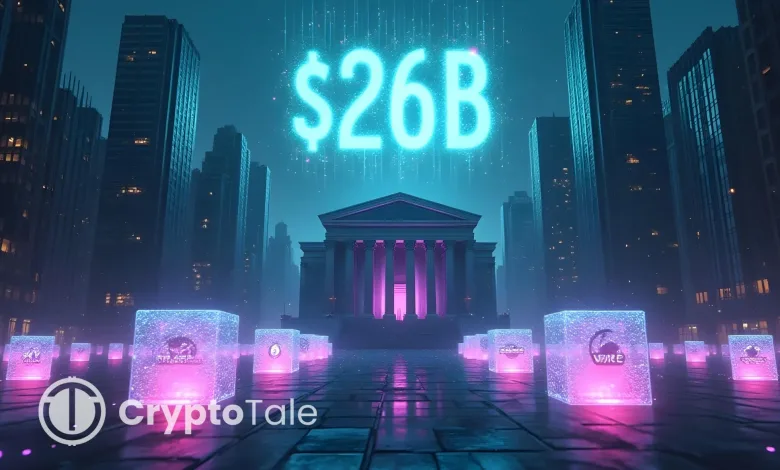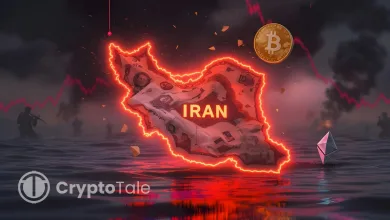Global Regulators Urge The SEC to Tighten Tokenized Stocks

- Tokenized stocks are growing fast, and global regulators want oversight from the SEC.
- The WFE warned that stock tokens mimic equities but lack rights and basic safeguards.
- Major platforms like Coinbase, Robinhood, and Kraken are expanding in the $26B market.
Global regulators are pressing the U.S. Securities and Exchange Commission (SEC) to strengthen oversight of tokenized stocks, which are expanding rapidly across financial markets. In a letter, the World Federation of Exchanges (WFE), representing the world’s largest stock exchanges, urged securities regulators to clamp down on blockchain-based tokens designed to mimic equities.
The letter was sent to three regulatory bodies, such as the SEC’s Crypto Task Force, the European Securities and Markets Authority (ESMA), and the International Organization of Securities Commissions’ (IOSCO) Fintech Task Force.
Regulators have warned that tokenized stocks, often advertised as being equivalent to traditional shares, expose investors to risks but do not provide the same level of security or validation. They observed that such tokens erode market integrity and may even mislead unsophisticated retail participants who are unaware of the discrepancies between blockchain tokens and real equities.
Tokenized stocks are blockchain-based representations of company shares. They allow trading outside regular hours, lower costs, and faster settlement. Yet they do not provide shareholders with dividends, voting rights, or ownership stakes in the underlying companies.
Industry Growth and Rising Concerns
The urgency stems from growing adoption. The market for tokenized assets has gone beyond $26 billion, according to industry data. While tokenized stocks account for a smaller fraction of this number, their footprint is expanding with Coinbase, Robinhood, and Kraken entering the space.
The WFE stated, “We are alarmed at the plethora of brokers and crypto-trading platforms offering or intending to offer so-called tokenized US stocks. These products are marketed as stock tokens or equivalent to the stocks when they are not.” The warning carries weight because of the WFE’s membership, which includes exchanges and clearing houses worldwide.
ESMA, the European Union’s financial supervisor, and IOSCO, the international standards body for securities markets, echoed these concerns. They argued that coordinated action is essential to prevent risks and protect global investors from custody issues or fraudulent activity.
Proponents of tokenization feel that blockchain really can change the face of finance by allowing after-hours trading, fractional ownership, and speedy cross-border settlements. However, regulators must stress that just because there is innovation, that does not mean one must exempt it from compliance or from the investor safeguards that securities laws encapsulate.
Related: IVD Medical Purchases $19M in Ethereum for Asset Tokenization
U.S. Signals and Future Path
In the United States, regulatory voices remain divided yet clear about the obligations of token issuers. SEC Commissioner Hester Peirce has reaffirmed that tokenized securities are subject to existing securities laws and compliance requirements. Startups like Dinari have already applied for broker-dealer registration to offer tokenized U.S. equities under official approval.
The SEC has also shown some openness towards tokenization. In July, SEC Chair Paul Atkins referred to tokenization as an “innovation” that should be permitted to flourish within the U.S. economy. However, the interplay between lobbying and outcomes was still apparent. During deliberations on the GENIUS stablecoin bill, banking groups pushed to exclude yield-bearing stablecoins that could have competed with their offerings.
The WFE intervention highlighted the growing concern as tokenized securities enter the mainstream financial infrastructure. As strong regulatory oversight gains demand, could tokenization be expanded without going against investor trust and market stability?




